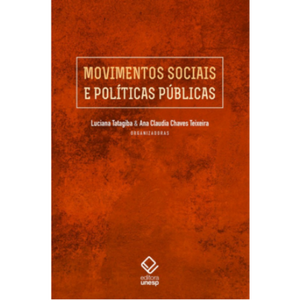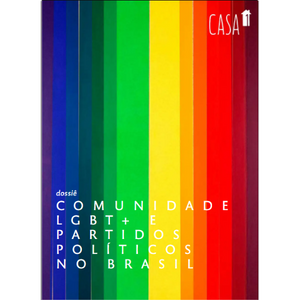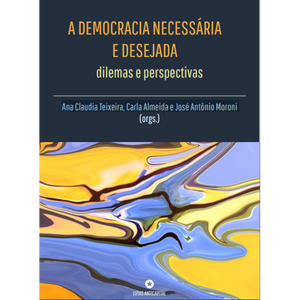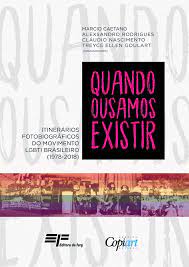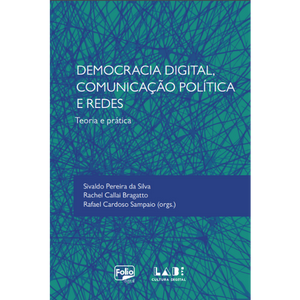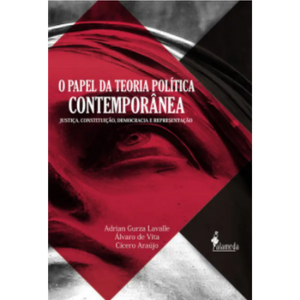Get to know the books published, organized or written by our researchers. It is worth mentioning that the works presented here are only those related to the theme covered by Resocie, although some of our researchers have other works in other areas.
2021
Organized by: Michelle Fernandez and Carlos Machado
Chapter by Rebecca Abers and Marisa von Bülow: Solidarity During the Pandemic in Brazil: Creative Recombinations in Social Movement Frames and Repertoires
The book analyzes the political impact and the governmental responses to the COVID-19 pandemic in eight Latin American countries. On the chapter Abers and Bülow argue that the solidarity initiatives were often carried out through frames that connected them to political agendas that went well beyond the pandemic, such as anti-racism, feminism, and the struggle against economic inequality.
2021
Organized by: Leonardo Avritzer, Fábio Kerche, Marjorie Marona
Chapters by Debora Rezende de Almeida and by Max Stabile and Marisa von Bülow
This book brings together anthropologists, sociologists, political scientists, economists and international relations professionals who help us understand Bolsonarism as a dual key, movement and form of government, and what the impacts of this are on public policy, the health of institutions and the lives of the Brazilian population
2021
Organized by: Luciana Tatagiba and Ana Claudia Chaves Teixeira
Chapter by Rebecca Abers: Creative Action in complex ecologies: building the practical authority of associative politics
Understanding how creative action affects the construction of new models of public policy (understood as new arrangements of authority) requires studying three dimensions of creative action: the actors, the terrain of action, and the creative action itself. The chapter explores three cases in which the process of public policy construction involves the reorganization of authority in favor of popular organizations: the My House My Life – Entities Program; the Cataforte Program; and the Food Acquisition Program.
2021
Organized by: Casa 1 – Acolhida de Jovens LGBT+
Chapter by Cleyton Feitosa
Participation in the dossier LGBT+ Community and Political Parties in Brazil with comments and analysis on the interaction between the LGBT population and political parties in Brazil.
2021
Organized by: Leonardo Avritzer and Priscila Delgado de Carvalho
Chapters by Pedro Abelin; and by Lorena Vilarins, Marisa von Bülow, Teógenes Moura, Alexandre Arns, Alexandre Gomes, Beatriz Franco e Alana Fontenelle
This book deals with contemporary crises of democracy, taking as its starting point problems that plague democracies in countries in South America, Africa and Southern Europe. The texts dialogue with recent theories that understand the crisis of democracy as processes of erosion of institutions, democratic values, and trust, or the expansion of neoliberal rationality that narrows the space of politics and undermines egalitarian relations.
2020
Organized by: Ana Claudia Teixeira, Carla Almeida and José Antônio Moroni
Chapters by Cleyton Feitosa; by Rebecca Abers and Roberto Pires; and by Debora Rezende de Almeida
This publication was born from the meeting between two initiatives: the Platform of Social Movements for the Reform of the Political System and the Network of researchers Democracy & Participation. We try to systematize some of the debates that have been circulating in social movements and in academy, around themes such as democracy, institutional participation State, racism, LGBTQI+ movements, voting, party, and community power.
2020
Organized by: Marta Arretche, Eduardo Marques and Carlos Aurélio Pimenta de Faria
Chapter by Rebecca Abers and Débora Rezende Almeida: Participation in the 21st Century: the clash between political projects in federal participatory institutions
Written by researchers and specialists on the theme, the articles that make up this volume investigate, under various aspects, the political frameworks of our recent republican trajectory. Thus, issues such as those related to the social protection agenda of different parties, the effectiveness of income redistribution policies adopted, the tax issue and its relation to social and economic inequality, the structure of the federal budget, among others, are addressed based on empirical data and with due scientific rigor.
2020
Organized by: James N. Green, Marcio Caetano, Marisa Fernandes e Renan Quinalha
Chapter by Mariana Fonseca e Daniel Pitangueira de Avelino – National Human Rights Council: Policy agenda and tasks performed
This study presents the results obtained from a research conducted within the National Council for Human Rights (CNDH). It analyzes the main demands, both from the Executive Secretariat of the CNDH (SECNDH) and from the council members, to allow the council to act effectively and autonomously, as well as the predominant themes on its political agenda, covering the end of 2017 and the beginning of 2018.
2018
Organized by: Marcio Caetano, Alexsandro Rodrigues, Cláudio Nascimento and Treyce Ellen Goulart
Chapter by Cleyton Feitosa: Deliberating citizenship: national conferences in the trajectory of Brazilian LGBT activism
Public policy conferences are “public spaces, generally convened by the executive branch, for direct dialogue between agents of the State and Civil Society with the purpose of formulating public policy guidelines” (SOUZA, 2008, p. 47). Based on this definition, I discuss the holding of LGBT National Conferences in Brazil as a relevant contemporary event in the trajectory of these 40 years of LGBT citizen activism.
2018
Organized by: James N. Green, Marcio Caetano, Marisa Fernandes and Renan Quinalha
Chapter by Clayton Feitosa: Social participation in the 40 years of the Brazilian LGBT Movement
The book History of the LGBT Movement in Brazil seeks to reconstruct some themes and privileged moments in the four-decade history of this important political actor in contemporary Brazil, paying attention to the diversity of its composition and perspectives within the movement. It thus intends to contribute to draw an interdisciplinary panorama of the 40 years of the Brazilian LGBT movement.
2016
Organized by: Sivaldo Pereira da Silva, Rachel Callai Bragatto and Rafael Cardoso Sampaio
Chapter by Débora Rezende de Almeida: Participatory Institutions, Accountability and Social Media: the National Council of Social Assistance
The present proposal does not aim to speak specifically about the political process underway, but to reflect on the field of digital democracy, debate experiences and outline potential scenarios in order to preserve achievements and dare experiments that strengthen public transparency and social participation through the Internet.
2015
Organized by: Adrian Gurza Lavalle, Álvaro de Vita and Cícero Araújo
Chapter by Débora Rezende de Almeida: Political representation revisited: authority, legitimacy and democracy
The unity of the book lies in the vibrant commitment of its authors to mobilize the knowledge and reflection decanted in the last decades to address urgent issues of our time, concerning equality, political justice and distributive justice, institutional choices at the level of constitutions and their consequences, and the limits of electoral democracy and the problem of the legitimacy of non-electoral expedients of political inclusion.
2013
Organized by: Leonardo Avritzer and Clóvis Henrique Leite de Souza
Chapter by Débora Rezende de Almeida: Political Representation and Conferences: establishing a research agenda
This book seeks to reflect on national conferences and their implications. These participatory processes that promote dialogue between state and society at the three levels of the Federation have been studied by several research institutions, which, in a collaborative way, join efforts in this joint production.



